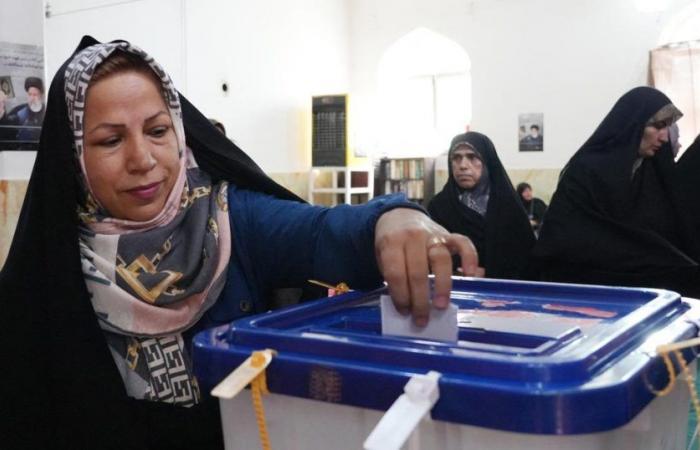
Polling stations opened Friday in Iran for the first round of the presidential election. The vote takes place a year earlier than planned, after the death of President Ebrahim Raïssi in a helicopter accident on May 12. Iranian women’s movements are taking a critical look at this election.
Some 61 million Iranians are called to the polls in the 58,640 polling stations scattered across the immense country, from the Caspian Sea in the north to the Gulf in the south.
As is tradition, it was the supreme guide, Ayatollah Ali Khamenei, who launched the operations by voting at 8 a.m. in front of dozens of cameras in Tehran.
The outcome of the vote is expected to have little political impact, but could affect the succession of Ayatollah Ali Khamenei. Official results are expected no later than Sunday, but estimates are expected on Saturday.
>> The analysis in La Matinale by Sébastien Regnault, researcher and specialist on Iran:
Four candidates
Four candidates, men in their 50s and 60s, are in the running to succeed Ebrahim Raisi after two of those endorsed by Iran’s Revolutionary Guards Council withdrew their candidacies on Thursday. If none of them garners more than half the vote, a runoff will be held on July 5, something that has only happened in one presidential election, in 2005, since the Islamic Republic came into being 45 years ago.
The surprise could come from the only reformist candidate, Massoud Pezeshkian, a 69-year-old MP who is virtually unknown until now. This doctor of Azeri origin, a minority in northwestern Iran, has given new hope to the reformist and moderate camps, totally marginalized in recent years by the conservatives and ultraconservatives.
Opposing him, the supporters of the current government are divided between the candidates Mohammad-Bagher Ghalibaf, conservative president of Parliament, and Said Jalili, former ultraconservative negotiator of the nuclear issue and hostile to a rapprochement with the West. A third conservative candidate, Mostafa Pourmohammadi, is also in the race.
The critical gaze of women
Two years after the death of Masha Amini, Iranian women have little hope that this election will change anything in the country. But the “Women, Life, Freedom” movement continues its actions. “Hundreds of women do not wear the headscarf in the big cities of Iran. They are imprisoned, beaten up. They show that they will not go back,” notes the French-Iranian writer and journalist Fariba Hachtroudi in La Matinale.
Massoud Pezeshkian, however, highlights the struggle of women and their desire for emancipation. “He never stops saying that women must be respected. But the whole problem is whether he can do something,” notes Fariba Hachtroudi.
>> Details in La Matinale on the views of Iranian women on this election:
A president with limited power
According to the opposition movements, this election will change nothing or almost nothing in the daily lives of Iranians. It is in fact the supreme leader, Ayatollah Khamenei, who holds effective power and enforces sharia, Islamic law.
Women, and young people in general, are more likely to want a change of regime. According to Fariba Hachtroudi, this election is marked by distrust.
“Young people are extremely critical. They want to show that they no longer believe in it. The campaign rooms are full to overflowing with a lot of young people, because people are suffocating. But that doesn’t mean that they are going to vote “, declares the writer.
>> Also consult: “The Iranians must fend for themselves” to hope to see the regime fall
The turnout will be decisive
The outcome of this election will depend on the participation rate, particularly among women. A weak mobilization would risk favoring, once again, a conservative candidate, according to Sébastien Regnault.
The researcher and Iran specialist says he is “convinced that reforms are possible” if the elected president comes from the progressive camp thanks to a mass vote. “The situation is always better for Iranians when a reformer is in power. It is not at all the same thing in terms of morals, individual freedom and social relations. There is a breathing space in society. Even if the supreme guide remains the final decision-maker, he still leaves a relatively free field for reformers to articulate their policies,” he explains.
>> Listen again to the analysis of the Franco-Iranian political scientist Mahnaz Shirali in Tout un monde:
>> Read also: Mahnaz Shirali: “Iranians have no intention of legitimizing a regime that is criminal in their eyes”
Radio subject: Agnès Millot
friend/boi with afp





